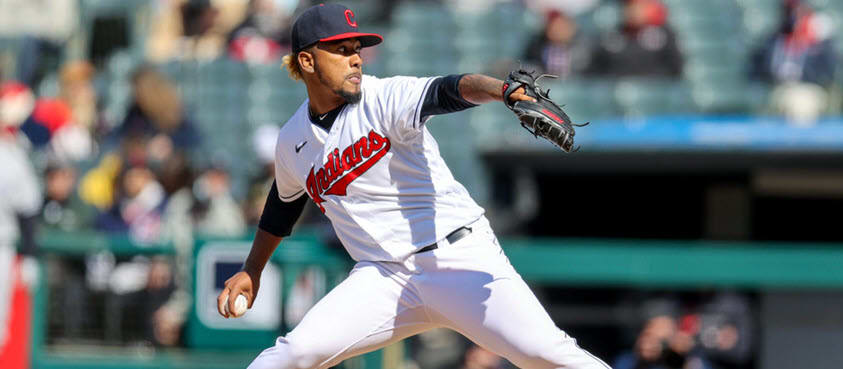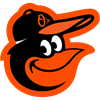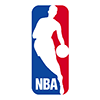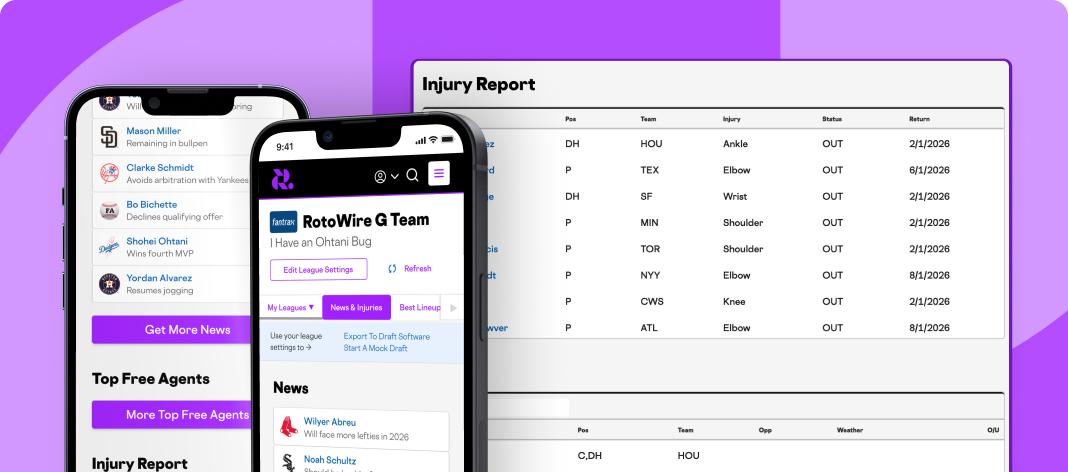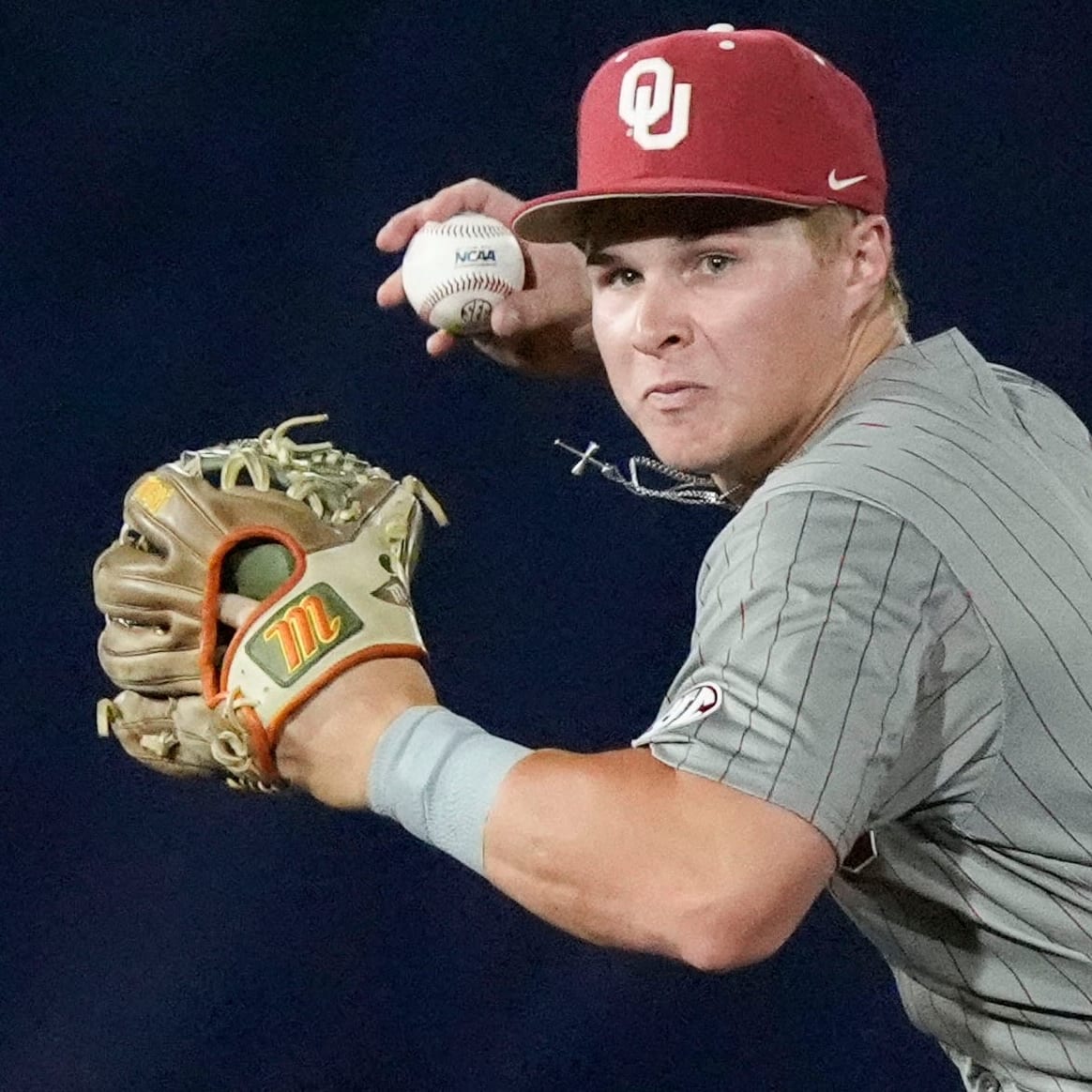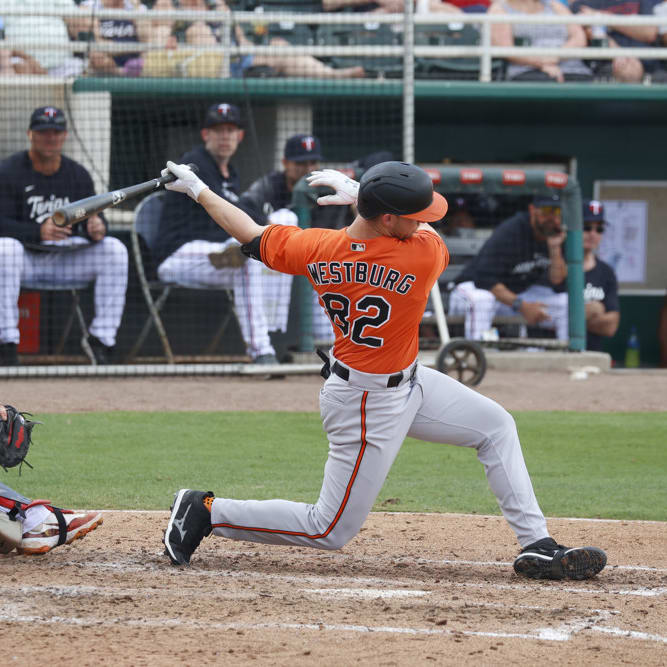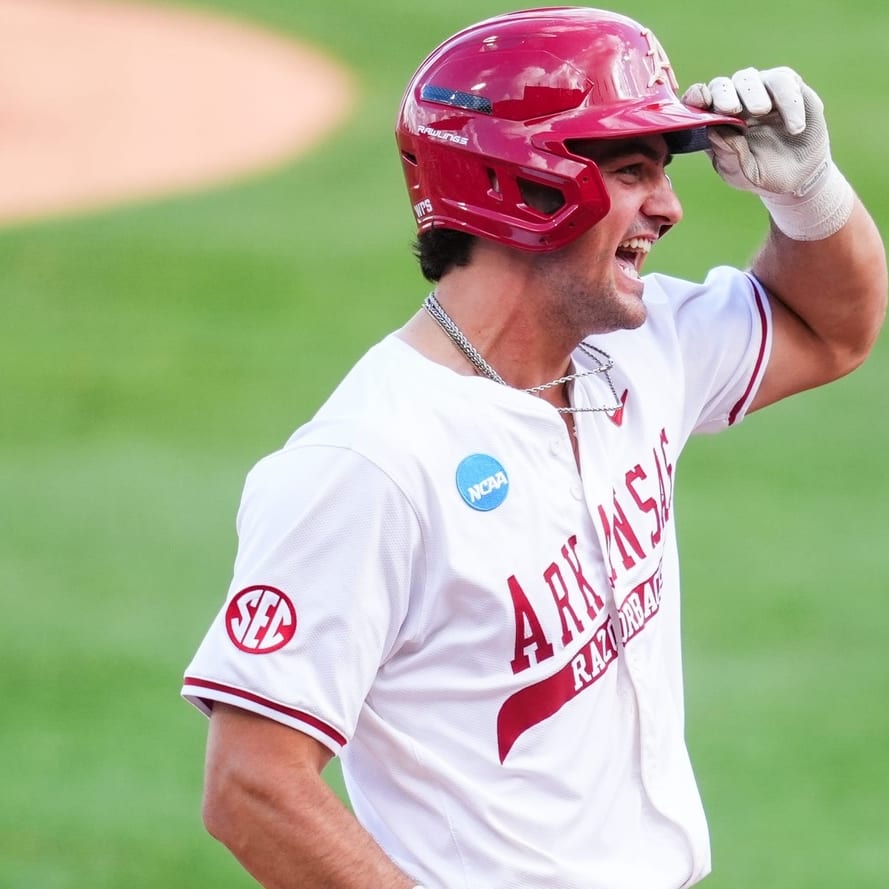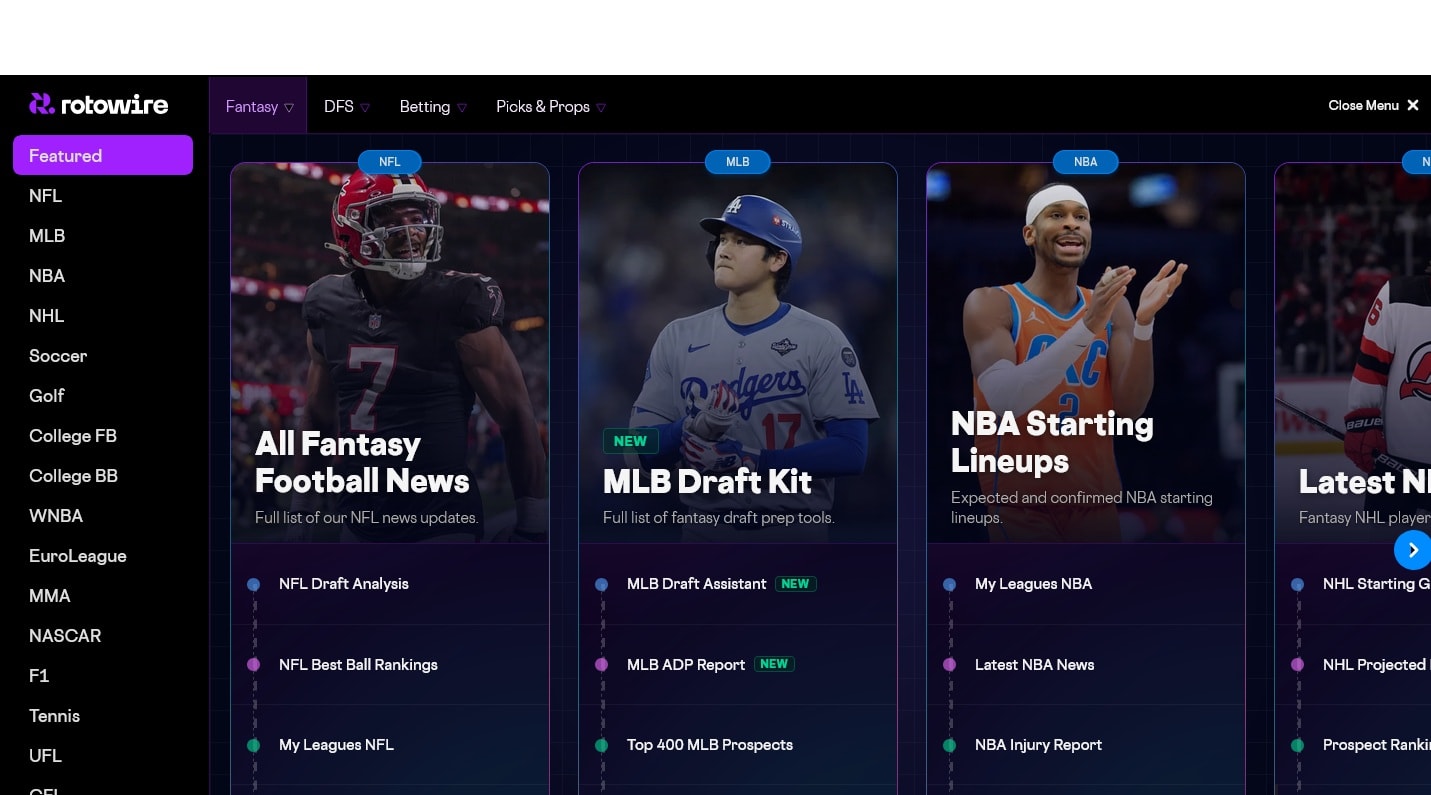A total of 222 pitchers combined to tally 1,232 saves in 2022, the most saves in a season since 2018 and the sixth-highest MLB save total over the past 10 years. This was also the first time more than 200 pitchers recorded at least one save during a single season.
Year | # of Pitchers with 1+ Saves | MLB Saves |
|---|---|---|
2022 | 222 | 1,232 |
2021 | 198 | 1,191 |
2020 | 131 | 422 |
2019 | 199 | 1,180 |
2018 | 165 | 1,244 |
2017 | 162 | 1,179 |
2016 | 148 | 1,276 |
2015 | 145 | 1,292 |
2014 | 134 | 1,264 |
2013 | 130 | 1,266 |
Of the 222 pitchers who earned saves in 2022:
- The majority of them — 158 to be exact, or 71.2 percent — recorded fewer than five saves.
- The remaining 64 pitchers (28.8 percent) logged five or more saves.
- 35 pitchers (15.8 percent) recorded 10 or more saves.
- 18 pitchers (8.1 percent) recorded 20 or more saves.
- 10 pitchers (4.5 percent) tallied 30 or more saves.
- Only 2 pitchers (0.9 percent) saved 40 or more games.
- No one was able to eclipse the 50-save mark, meaning no one has done so since Edwin Diaz amassed 57 saves for Seattle back in 2018.
Before we dive into the individual save leaders in Part 2 of this article (to be published in the coming week or so), let's break things down by team.
Team | Team Saves | Wins | Save % of Wins | # of Pitchers with Saves in 2022 | Team Saves Leader | % of Team Saves |
|---|---|---|---|---|---|---|
ARI | 33 | 74 | 44.6% | 5 | Mark Melancon (18) | 54.5% |
A total of 222 pitchers combined to tally 1,232 saves in 2022, the most saves in a season since 2018 and the sixth-highest MLB save total over the past 10 years. This was also the first time more than 200 pitchers recorded at least one save during a single season.
Year | # of Pitchers with 1+ Saves | MLB Saves |
|---|---|---|
2022 | 222 | 1,232 |
2021 | 198 | 1,191 |
2020 | 131 | 422 |
2019 | 199 | 1,180 |
2018 | 165 | 1,244 |
2017 | 162 | 1,179 |
2016 | 148 | 1,276 |
2015 | 145 | 1,292 |
2014 | 134 | 1,264 |
2013 | 130 | 1,266 |
Of the 222 pitchers who earned saves in 2022:
- The majority of them — 158 to be exact, or 71.2 percent — recorded fewer than five saves.
- The remaining 64 pitchers (28.8 percent) logged five or more saves.
- 35 pitchers (15.8 percent) recorded 10 or more saves.
- 18 pitchers (8.1 percent) recorded 20 or more saves.
- 10 pitchers (4.5 percent) tallied 30 or more saves.
- Only 2 pitchers (0.9 percent) saved 40 or more games.
- No one was able to eclipse the 50-save mark, meaning no one has done so since Edwin Diaz amassed 57 saves for Seattle back in 2018.
Before we dive into the individual save leaders in Part 2 of this article (to be published in the coming week or so), let's break things down by team.
Team | Team Saves | Wins | Save % of Wins | # of Pitchers with Saves in 2022 | Team Saves Leader | % of Team Saves |
|---|---|---|---|---|---|---|
ARI | 33 | 74 | 44.6% | 5 | Mark Melancon (18) | 54.5% |
ATL | 55 | 101 | 54.5% | 6 | Kenley Jansen (41) | 74.5% |
BAL | 46 | 83 | 55.4% | 9 | Jorge Lopez (19) | 44.2% |
BOS | 39 | 78 | 50.0% | 9 | 3 tied with 8 | 20.5% |
CHC | 44 | 74 | 59.5% | 10 | David Robertson (14) | 31.8% |
CIN | 31 | 62 | 50.0% | 10 | Alexis Diaz (10) | 32.3% |
CLE | 51 | 92 | 55.4% | 6 | Emmanuel Clase (42) | 82.4% |
COL | 43 | 68 | 63.2% | 6 | Daniel Bard (34) | 79.1% |
CWS | 48 | 81 | 59.3% | 6 | Liam Hendriks (37) | 77.1% |
DET | 38 | 66 | 57.6% | 5 | Gregory Soto (30) | 78.9% |
HOU | 53 | 106 | 50.0% | 5 | Ryan Pressly (33) | 62.3% |
KC | 33 | 65 | 50.8% | 6 | Scott Barlow (24) | 72.7% |
LAA | 38 | 73 | 52.1% | 7 | Raisel Iglesias (16) | 42.1% |
LAD | 43 | 111 | 38.7% | 12 | Craig Kimbrel (22) | 51.2% |
MIA | 41 | 69 | 59.4% | 7 | Tanner Scott (20) | 48.8% |
MIL | 52 | 86 | 60.5% | 7 | Josh Hader (29) | 55.8% |
MIN | 28 | 78 | 35.9% | 9 | Emilio Pagan (9) | 32.1% |
NYM | 41 | 101 | 40.6% | 6 | Edwin Diaz (32) | 78.0% |
NYY | 47 | 99 | 47.5% | 12 | Clay Holmes (20) | 42.6% |
OAK | 34 | 60 | 56.7% | 7 | Dany Jimenez (11) | 32.4% |
PHI | 42 | 87 | 48.3% | 11 | Corey Knebel (12) | 28.6% |
PIT | 33 | 62 | 53.2% | 9 | David Bednar (19) | 57.6% |
SD | 48 | 89 | 53.9% | 6 | Taylor Rogers (28) | 58.3% |
SEA | 40 | 90 | 44.4% | 7 | Paul Sewald (20) | 50.0% |
SF | 39 | 81 | 48.1% | 8 | Camilo Doval (27) | 69.2% |
STL | 37 | 93 | 39.8% | 6 | Ryan Helsley (19) | 51.4% |
TB | 44 | 86 | 51.2% | 11 | 2 tied with 8 | 18.2% |
TEX | 37 | 68 | 54.4% | 10 | Joe Barlow (12) | 35.1% |
TOR | 46 | 92 | 50.0% | 7 | Jordan Romano (36) | 78.3% |
WAS | 28 | 55 | 50.9% | 6 | Tanner Rainey (12) | 42.9% |
If we calculate averages for the above, we come out with roughly 41 saves per team with a save being recorded in 50.7 percent of MLB wins (1,232 MLB saves in 2,430 MLB wins). This percentage is up from last season, when a save was recorded in 49 percent of MLB wins.
Colorado led the league with a save in 63.2 percent of their wins, while Milwaukee was next at 60.5 percent. Both teams played in plenty of close games, as the Rockies were involved in 47 one-run contests, of which they won 23, while the Brewers had 51 one-run affairs, winning 28.
On the flip side, Minnesota (35.9 percent), the Los Angeles Dodgers (38.7 percent) and St. Louis (39.8 percent) had the lowest save percentages. All three teams were involved in plenty of blowouts, which are defined as wins or losses by five or more runs. 42 of the Dodgers' 111 wins this season were blowouts, so there weren't as many save chances to be had.
On average, teams distributed saves between 7.7 pitchers in 2022, which is also up from last year's 6.8 mark. This was expected with the overall increase in pitchers recording at least one save.
For the fourth straight season, the Tampa Bay Rays used more than 10 pitchers for saves. Kevin Cash once again deployed a closer committee in 2022, distributing his team's saves between 11 pitchers. However, the Rays surprisingly did not use the most pitchers for saves in 2022. Rather, both the Yankees and Dodgers led the way with 12 pitchers tallying saves this season. Both Aroldis Chapman and Craig Kimbrel performed poorly, which opened the door for other relief pitchers to earn saves on those respective clubs.
Now let's go team-by-team to summarize how each approached saves during the 2022 season.
2022 Saves - Team by Team Summary
 Arizona Diamondbacks - Primary closer until early August, then fluid
Arizona Diamondbacks - Primary closer until early August, then fluid
After finishing with a league-low 22 saves distributed between eight pitchers in 2021, Arizona was desperate for stability in the late innings and signed veteran relievers Mark Melancon and Ian Kennedy last offseason. Fresh off a league-leading 39 saves for the Padres in 2021, Melancon was the favorite to close games for the D'Backs to open the year. He racked up 14 of Arizona's 20 saves between April and July, but poor performance forced manager Torey Lovullo to evaluate Melancon's role as early as mid-May. Finally, on August 5, it was announced that Arizona would go with a closer-by-committee approach. From that date forward, saves were split between Ian Kennedy (five), Melancon (four), Reyes Moronta (two) and Kevin Ginkel (one) over the rest of the season.
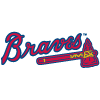 Atlanta Braves - Primary closer all season
Atlanta Braves - Primary closer all season
Kenley Jansen finished second in the league with 41 saves and regained some of the command that he lost in 2021. He did endure a few rough patches during the season but was able to overcome them without much threat of losing his role, even after Atlanta acquired Raisel Iglesias at the trade deadline. Prior to the trade, Jansen experienced a recurrence of his cardiac issues that required a trip to the IL, but it was a near-minimum IL stint, during which A.J. Minter and Will Smith split save chances for the Braves.
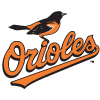 Baltimore Orioles - Primary closer all season
Baltimore Orioles - Primary closer all season
Baltimore's late-inning roles were a question mark just days before the season started when the team traded Tanner Scott and Cole Sulser to Miami. Manager Brandon Hyde suggested Jorge Lopez would be a candidate for save chances, but also included Dillon Tate and Paul Fry in that conversation initially. Fortunately, Lopez gave us clarity on the role right away, establishing himself as the O's most trusted relief pitcher. He was Baltimore's primary closer until the trade deadline, at which point the team capitalized on the peak of his value by sending him to Minnesota. A closer committee was again suggested after Lopez was traded, but Felix Bautista quickly emerged from the possible candidates after dominating in a setup role all season. Tate contributed a handful of ancillary saves when Lopez and Bautista were unavailable.
 Boston Red Sox - Fluid closer usage all season (manager preference)
Boston Red Sox - Fluid closer usage all season (manager preference)
Boston's first six saves of the 2022 season were split between six different pitchers, after their spring favorite to land the closer role, Matt Barnes, experienced diminished velocity and had a late start to the season. Once Barnes made his season debut, he didn't pitch well, thus ceding save chances to others in the Red Sox bullpen. It wasn't until Tanner Houck established himself during the month of June that we finally had some clarity — albeit briefly, as Alex Cora quickly shifted to a committee again soon afterwards. Houck then landed on the injured list with a disc issue in his back and was unable to return. Overall, he was tied for the team lead with eight saves, along with Barnes and John Schreiber, who tallied most of his saves in the second half of the year.
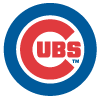 Chicago Cubs - Primary closer until the trade deadline, then fluid
Chicago Cubs - Primary closer until the trade deadline, then fluid
Manager David Ross took the same approach with his 2022 closer role as he did the year prior. In both seasons, he used veterans on expiring contracts as his primary closer — Craig Kimbrel in 2021, David Robertson in 2022 — then shifted to a closer committee once the Cubs were out of the playoff hunt and traded said veterans at the deadline. From that point forward this season, the Cubs split their 22 saves between six relievers: Brandon Hughes (eight), Rowan Wick (five), Manuel Rodriguez (four), Mark Leiter (three), Erich Uelmen (one) and Keegan Thompson (one).
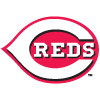 Cincinnati Reds - Fluid closer usage all season (manager preference)
Cincinnati Reds - Fluid closer usage all season (manager preference)
With the third-worst record in 2022, there weren't many saves to go around in Cincinnati. However, manager David Bell stuck to his closer committee approach all season, with only one reliever recording double-digit saves. Alexis Diaz was very clearly the Reds' best bullpen arm and led the team with 10 saves, but he didn't record his first of the season until mid-May and wasn't given an extended look in the role until later in the season. After tallying the Reds first save on April 7, Tony Santillan (four saves) might have led the Reds in the category, but he suffered a back injury in mid-June and never returned from the IL. Art Warren (three saves) was ineffective and Lucas Sims (one) was limited to 6.2 innings all season due to injury. Thus, Bell was forced to use journeyman Hunter Strickland (seven) as one of the 10 total pitchers that he used for saves.
 Cleveland Guardians - Primary closer all season
Cleveland Guardians - Primary closer all season
Emmanuel Clase did not have competition for the closer role entering the year and continued his 2021 dominance throughout this past season, winning American League Reliever of the Month honors three times.
 Colorado Rockies - Primary closer all season
Colorado Rockies - Primary closer all season
Rockies manager Bud Black typically likes to stick with one closer, but there were reports of him possibly using a three-man committee between Daniel Bard, Alex Colome and Carlos Estevez to open 2022. That's not how things played out, as Bard earned six of the Rockies' 10 saves during the month of April and impressed all season to hold a firm grasp on closer role. Bard finished sixth in the league with 34 saves, and his success this past season earned him a two-year extension with Colorado.
 Chicago White Sox - Primary closer all season
Chicago White Sox - Primary closer all season
Liam Hendriks had a down season by his draft standards — he was a second-round pick in most 15-team NFBC formats — but the Aussie still finished third in the league with 37 saves, which is where it counts for fantasy purposes. His ratios and strikeout totals weren't bad either. When Hendriks missed a few weeks in mid-June with a forearm strain, the leverage ladder was very clear, with Kendall Graveman the primary fill-in option.
 Detroit Tigers - Primary closer all season
Detroit Tigers - Primary closer all season
Tigers manager A.J. Hinch declared Gregory Soto his closer for the 2022 season only a few days after the 2021 season ended. Somehow, despite a 12.9 percent walk rate and a diminished strikeout rate of only 22.8 percent, the hard-throwing southpaw remained in the closer role all season. The Tigers only used five pitchers for saves in 2022, tied for the fewest among all 30 MLB teams.
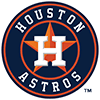 Houston Astros - Primary closer all season
Houston Astros - Primary closer all season
The Astros also used only five pitchers for saves in 2022, with Ryan Pressly the primary option when healthy and Rafael Montero the fill-in whenever Pressly was hurt — he required two IL stints in 2022 — or unavailable.
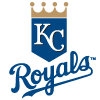 Kansas City Royals - Primary closer for most of the season
Kansas City Royals - Primary closer for most of the season
Josh Staumont recorded Kansas City's first two saves of 2022 but only finished with three on the season, as the Royals quickly shifted to Scott Barlow as their primary closer once the calendar flipped to May. Barlow secured 24 of the Royals' 33 saves, good for a 72.7 percent team save share, the eighth-highest mark among all closers.
 Los Angeles Angels - Primary closer until the trade deadline, then fluid
Los Angeles Angels - Primary closer until the trade deadline, then fluid
Just nine months after signing him to a four-year contract, the Angels traded their primary closer, Raisel Iglesias, to Atlanta. After the trade, the Angels split closing duties over the remainder of the season between Jimmy Herget (eight saves), Ryan Tepera (five), Jose Quijada (two) and Aaron Loup (one).
 Los Angeles Dodgers - Primary closer until July, then fluid
Los Angeles Dodgers - Primary closer until July, then fluid
Once longtime Dodgers closer, Kenley Jansen, signed with the Braves last offseason, it appeared Blake Treinen, Daniel Hudson and Brusdar Graterol would all receive plenty of save opportunities to open 2022. Then, a week before the season started, the Dodgers traded for the league's active saves leader in Craig Kimbrel. Despite a long history of success, Kimbrel's stability in the role was shaky all year, and while he didn't technically lose the role until late September, the Dodgers shifted away from him as their primary option for ninth-inning duties as early as July. After July 1, Kimbrel only recorded eight of the Dodgers' 23 saves, relying on Graterol, Evan Phillips and a handful of others instead.
 Miami Marlins - Primary closer for most of the season
Miami Marlins - Primary closer for most of the season
The Marlins' 2021 second-half closer, Dylan Floro, didn't make his 2022 debut until May 10. Since he got off to a late start, Miami gave sophomore reliever Anthony Bender an extended look in the closer role to open 2022. Bender tallied six saves during the month of April and continued to pitch well into May until a back injury sidelined him for two months. He'd make only six more appearances in August 2022 before an elbow injury required season-ending Tommy John surgery. At the onset of Bender's initial injury, the Marlins performed poorly in his absence, going 7-19 in May with only one save, which went to Cole Sulser. Unfortunately, timing was not on Sulser's side, as an awful weekend at Coors Field doomed his shot at the closer role. Fortunately, Miami eventually found their answer in Tanner Scott, who took over in June and held the primary closer role for nearly three months. Floro came on again over the final month and change, tallying seven of Marlins' final nine saves.
 Milwaukee Brewers - Primary closer for most of the season
Milwaukee Brewers - Primary closer for most of the season
Josh Hader was dominant for the Brewers to begin the 2022 season. He didn't even give up his first earned run of the year until June 7. Then, from Independence Day through the end of July, the southpaw allowed 13 runs over 8.1 innings (14.04 ERA) with a horrendous 2.28 WHIP. Milwaukee had enough and elected to trade him to San Diego. The deal brought back lefty Taylor Rogers, who had been leading the league in saves along with Hader at the time of the trade. With Hader out of the picture, it was Devin Williams time. Well, sort of. Rather than give Williams all the save chances he could handle, the Brewers kept Rogers involved with three saves and turned to Matt Bush for two more. Williams finished the year with 15 saves on the season, including nine of Milwaukee's final 15 saves after the trade deadline, so you could say the Brewers somewhat maintained a primary closer after trading Hader.
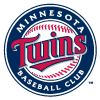 Minnesota Twins - Fluid closer usage all season (poor performance)
Minnesota Twins - Fluid closer usage all season (poor performance)
It was a weird year that saw Minnesota — who was in playoff contention for much of the season in a weak AL Central division — tie with Washington for the fewest saves in the league with 28. What's even weirder is that the Twins recorded 10 of those saves during the month of May alone. You could say they doomed their chances by giving homer-prone Emilio Pagan time in the ninth inning early in the season, but even removing him from closing considerations on July 1 may have been too late. Not even dominant rookie Jhoan Duran or mid-season acquisitions Jorge Lopez and Michael Fulmer could turn things around for the Twins, who weren't able to give any of their relievers an extended look in the role.
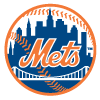 New York Mets - Primary closer all season
New York Mets - Primary closer all season
I'm still impressed that Edwin Diaz was so dominant in 2022 that the Mets gave him a theatrical, wrestling-like intro for his appearances. Diaz may not have secured as many saves as Emmanuel Clase, Liam Hendriks or Jordan Romano, but he was still one of the best closers in baseball this season, if not the best.
 New York Yankees - Primary closer until early August, then fluid
New York Yankees - Primary closer until early August, then fluid
Aroldis Chapman didn't give up his first earned run until May 11. The wheels quickly came off after that, and credit the Yankees for shifting closing duties to Clay Holmes when they did. Holmes was in the conversation with Josh Hader, Edwin Diaz and Emmanuel Clase for the league's best reliever in the first half of the year. Holmes endured some hiccups later in the season, and a mid-August stint on the IL left a huge void in the back-end of the Yankees' pen. At that point, Scott Effross, Wandy Peralta and Jonathan Loaisiga comprised a makeshift committee until Holmes was healthy enough to return and rejoin the mix. Lou Trivino and Lucas Luetge also tallied saves down the stretch for New York.
 Oakland Athletics - Primary closer for most of the season
Oakland Athletics - Primary closer for most of the season
Lou Trivino opened 2022 as the A's closer but landed on the COVID-IL in mid-April, forcing manager Mark Kotsay to find a replacement. Fortunately, Dany Jimenez had been pitching brilliantly for Oakland and was very clearly the next man up in the hierarchy for saves. Jimenez did not allow an earned run until his 14th appearance of the season on May 15 and wound up tallying the majority of the A's saves (11 of 14) through mid-June. Then, a strained shoulder sidelined Jimenez for over a month, at which point Oakland shifted back to Trivino. Trivino logged eight of the next nine saves for the A's until they traded him to the Yankees as part of the Frankie Montas deal. With Jimenez still working his way back from his shoulder injury, A.J. Puk and Zach Jackson, who was among the AL holds leaders, became the favorites for saves, with both recording one apiece in the days after the trade deadline. However, August was another losing month for Oakland and saw the team's two best relievers — Jimenez and Jackson — suffer season-ending injuries. Domingo Acevedo had performed well in a setup role all year and closed out 2022 with all four of Oakland's saves in September.
 Philadelphia Phillies - Primary closer until mid June, then fluid
Philadelphia Phillies - Primary closer until mid June, then fluid
Corey Knebel was announced as the Phillies' closer last spring and wound up receiving the lion's share of save opportunities early in the season under manager Joe Girardi. Girardi was fired in early June, and the struggling Knebel was removed from the closer role a short time later by interim manager Rob Thomson. Thomson deployed a closer committee for the rest of the season that primarily featured Seranthony Dominguez (nine saves), David Robertson (six), whom the Phillies acquired from the Cubs, and Brad Hand (four), with five other relievers also recording saves after Thomson took over.
 Pittsburgh Pirates - Primary closer for most of the season
Pittsburgh Pirates - Primary closer for most of the season
David Bednar was undoubtedly the Pirates' primary closer when healthy. During the month-and-a-half that he missed due to back inflammation, Pittsburgh deployed a closer committee that saw Wil Crowe, Eric Stout, Chase De Jong, Duane Underwood and Miguel Yajure all earn saves until Bednar returned late in the season.
 San Diego Padres - Primary closer for most of the season
San Diego Padres - Primary closer for most of the season
The Padres made headlines when they acquired Taylor Rogers from Minnesota on Opening Day. Manager Bob Melvin immediately named Rogers his closer, and the southpaw went on to rack up 28 saves for San Diego through late July. At that point, Rogers received a "break" from closing due to poor performance, and he found himself traded to Milwaukee a few days later in a deal that brought Josh Hader to San Diego. Hader was also struggling at the time of the trade and was given a break from closing of his own on August 20. Nick Martinez took over closing duties for just over a week, but by August 31, Hader was back to form. The lefty tallied all seven of the Padres' saves to close out the year.
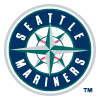 Seattle Mariners - Fluid closer usage all season (manager preference)
Seattle Mariners - Fluid closer usage all season (manager preference)
In this modern age of ever-evolving bullpen usage, was the toughest team to apply a label to based on how their 2022 saves were distributed. We know Scott Servais likes to deploy a closer committee — three relievers recorded 10 or more saves for him during the 2021 season — but this past season was a bit different, as Paul Sewald tallied 50 percent of the Mariners' saves with 20 while no one else recorded more than seven. Sewald didn't even log his first save of the season until May 10, as Drew Steckenrider, Diego Castillo and Andres Munoz earned the first three saves of the year for Seattle. Munoz finished the year with four saves and broke out in a big way. He has the stuff to be their primary closer as early as next season, but would Servais even entertain that possibility based on his historical closer usage?
 San Francisco Giants - Primary closer all season
San Francisco Giants - Primary closer all season
Camilo Doval parlayed his late-2021 success into the primary closer role for all of 2022 despite manager Gabe Kapler announcing before the season that Jake McGee would be his closer on Opening Day. Doval's biggest threats to the role — McGee and Tyler Rogers — simply did not perform to expectations, while Doval was fairly consistent all season, save for a few rough patches that he was ultimately able to overcome.
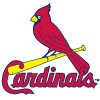 St. Louis Cardinals - Primary closer for most of the season
St. Louis Cardinals - Primary closer for most of the season
Oliver Marmol's "closer by calculation" approach to the ninth inning may have resulted in a save split between Ryan Helsley (19) and Giovanny Gallegos (14) by the end of the season, but both were the primary closer for the Cardinals at different points of year. Gallegos was the primary closer from April through late May, logging eight of the team's first nine saves, while Helsley took over the primary save share from July 7 onward, recording 13 of the Cardinals final 19 saves. Between May 20 and July 7, there was a quasi-committee with Helsley recording five saves, while five others went to a mix of relievers. However, between Helsley and Gallegos alone, they accounted for 89.2 percent of the Cardinals saves in 2022.
 Tampa Bay Rays - Fluid closer usage all season (manager preference)
Tampa Bay Rays - Fluid closer usage all season (manager preference)
We expect fluid bullpen roles every year from Kevin Cash, who hasn't had a bona-fide primary closer since Alex Colome in 2017. In 2022, Jason Adam and Pete Fairbanks led the Rays with eight saves apiece, while Colin Poche (seven), Brooks Raley (six) and Andrew Kittredge (five) also pitched in with a handful or more. Kittredge, in particular, was the preseason favorite to head this committee, but suffered an elbow injury that required season-ending Tommy John surgery in June. Had he remained healthy all year, there's a decent chance he would have led the Rays in saves.
 Texas Rangers - Fluid closer usage all season (poor performance)
Texas Rangers - Fluid closer usage all season (poor performance)
Despite a strong debut as the Rangers closer in the latter half of the 2021 season, Joe Barlow didn't assume closing duties right away in 2022. He did find his way back into the closer role, tallying 13 saves from late April through early July, but was then demoted to a lower-leverage role after a string of blown saves. Ultimately, Barlow dealt with persistent blister issues that held him out for the majority of the second half. This allowed others in the Texas bullpen to emerge in the late innings. Brett Martin got first crack at closing duties and tallied three saves in a four-day span but quickly proved unreliable. Next up was Jonathan Hernandez, who logged four saves before imploding due to lost command. Jose Leclerc earned the majority of opportunities from mid-August onward, finishing second on the team with seven saves. Matt Moore closed out the year with two straight saves to finish with a career-high five on the season.
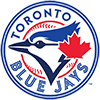 Toronto Blue Jays - Primary closer all season
Toronto Blue Jays - Primary closer all season
Jordan Romano recorded 78.3 percent of Toronto's saves in 2022, which was the fourth-highest percentage among all closers. Adam Cimber (four saves) and Tim Mayza (two) were the only other Blue Jays to log multiple saves in 2022.
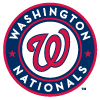 Washington Nationals - Primary closer all season
Washington Nationals - Primary closer all season
The 2022 Nationals had the worst record in baseball with only 55 wins, but their closer role was fairly straightforward all season. Tanner Rainey opened the year as Washington's closer and held it until mid-July, at which point he suffered a UCL sprain and required season-ending Tommy John surgery. 2021 second-half closer, Kyle Finnegan, then took the reigns for the rest of the season.
To summarize 2022 saves by team approach:
- 11 teams used a primary closer all season - ATL, BAL, CLE, COL, CWS, DET, HOU, NYM, SF, TOR and WAS
- 7 teams used a primary closer for most of the season - KC, MIA, MIL, OAK, PIT, STL, SD
- 6 teams opened 2022 with a primary closer, but shifted to fluid roles at some point in the year - ARI, CHC, LAA, LAD, NYY and PHI
- 4 teams had fluid closer usage all season due to manager preference - BOS, CIN, SEA, TB
- 2 teams had fluid closer usage all season due to poor performance - MIN, TEX
For Part 2 of this 2022 Saves in Review series, I'll focus on individual save leaders, my closer hits and misses, plus my own performance in the saves category this past season. I'll also review what worked and what didn't for addressing saves via drafts and through FAAB/waivers.
Stay tuned!
